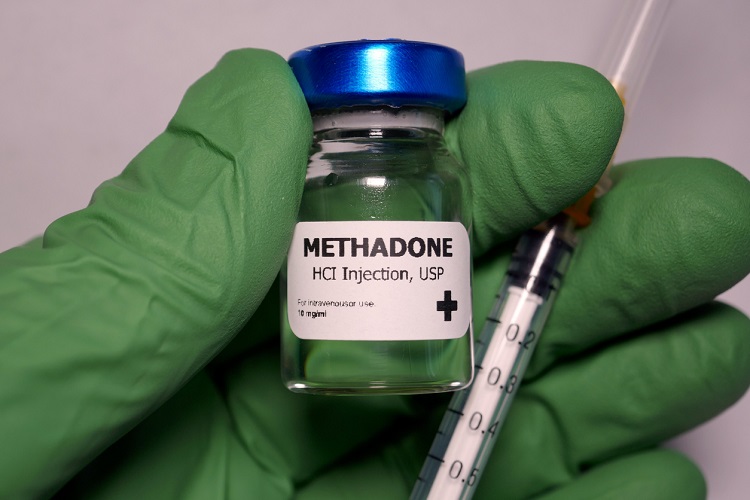2 June 2021
A new global review has found that receiving Opioid Agonist Therapy (OAT) is associated with lower risk of multiple causes of death among people with opioid dependence.

The review found that people with opioid dependence were less likely to experience overdose-related, suicide, alcohol-related, cancer, and cardiovascular-related mortality while receiving OAT.
Researchers from the NIHR Health Protection Research Unit in Behavioural Science and Evaluation at University of Bristol and National Drug and Alcohol Research Centre (NDARC) at UNSW Sydney, and several other global institutions reviewed the relationship between OAT and mortality across type of drug, setting and participant groups from over 700,000 participants, which is six times the number of any other previous review.
The review found that mortality risk was lower for those receiving either buprenorphine or methadone treatment, the two most common forms of OAT for people with opioid dependence.
Lead author, Thomas Santo Jr, PhD candidate at NDARC, said: “People with opioid dependence who receive OAT are not only at lower risk of overdose than those who do not, but also at lower risk of suicide and several other common causes of death.”
“This review provides further justification for expanding access to OAT to help lower the risk of mortality among people with opioid dependence,” said Mr Santo.
“Importantly, the benefits of OAT were consistent across region, age, sex, and comorbidity status. The few studies that examined the impact of OAT after release from prison, found that time in OAT lowered risk of mortality.”
The review confirmed that there was a greater risk of death in the first month after OAT is stopped. For patients on methadone, there was a greater risk of mortality at the beginning of treatment which was not seen for patients on buprenorphine.
“The first four weeks that follow treatment cessation are associated with particularly high rates of suicide and overdose-related mortality,” said Mr. Santo.
“These findings emphasise the importance of retention in treatment for those with opioid dependence who start treatment on OAT. There is also a need for more detailed investigation and intervention development to minimise mortality risk during induction onto OAT.”
The review shows that randomised controlled trials (RCTs) of OAT are underpowered (do not have a large enough sample size) to examine mortality risk.
“We looked at trial evidence but so few studies were powered to examine mortality, which is why we need to rely on cohort studies of people in treatment around the world,” said Mr Santo.
Professor Matt Hickman, at the NIHR Health Protection Research Unit in Behavioural Science and Evaluation at University of Bristol, said: “The research evidence is clear – OAT reduces mortality risk – but the population benefits of OAT may not be realised if treatment periods in the community are too short and prisoners with opioid use disorders are not released on OAT after leaving prison. Countries – like the UK – with ongoing public health crises in drug related deaths – need to review both access to OAT and the way it is delivered to ensure the greatest number of deaths are averted.”
“A clinical decision support system, stratifying clients’ risk of dropout in real time, may facilitate the identification of those in need of service enhancements to increase engagement and prevent dropout.”
“Work to scale up access and retention could have important population-level benefits.”
Paper: Association of opioid agonist treatment with all-cause mortality and specific causes of death among people with opioid dependence: A systematic review and meta-analysis. Thomas Santo Jr. et al. Published in JAMA Psychiatry. 2 June 2021.
Further information
About the NIHR Health Protection Research Unit [HPRU] in Behavioural Science and Evaluation at the University of Bristol
The NIHR HPRU in Behavioural Science and Evaluation at University of Bristol is one of 14 HPRUs across England, part of a £58.7 million investment by the NIHR to protect the health of the nation.
The NIHR HPRU in Behavioural Science and Evaluation is a partnership between Public Health England and University of Bristol, in collaboration with MRC Biostatistics Research Unit at the University of Cambridge and University of the West of England.
Each NIHR HPRU undertakes high quality research that is used by PHE to keep the public safe from current and emerging public health threats.
About the NIHR
The National Institute for Health Research (NIHR) is the nation’s largest funder of health and care research. The NIHR:
- funds, supports and delivers high quality research that benefits the NHS, public health and social care
- engages and involves patients, carers and the public in order to improve the reach, quality and impact of research
- attracts, trains and supports the best researchers to tackle the complex health and care challenges of the future
- invests in world-class infrastructure and a skilled delivery workforce to translate discoveries into improved treatments and services
- partners with other public funders, charities and industry to maximise the value of research to patients and the economy.
The NIHR was established in 2006 to improve the health and wealth of the nation through research, and is funded by the Department of Health and Social Care. In addition to its national role, the NIHR supports applied health research for the direct and primary benefit of people in low- and middle-income countries, using UK aid from the UK government.